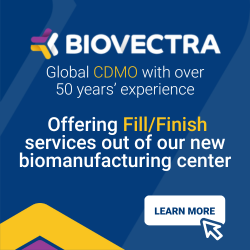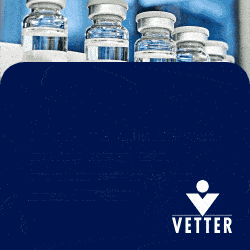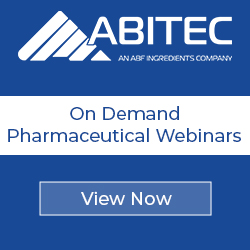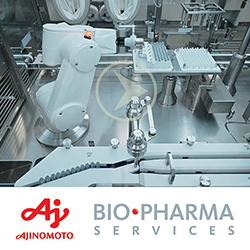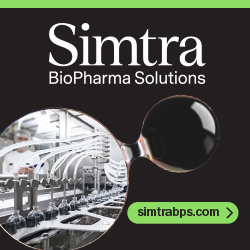EQRx Announces Two Lancet Oncology Publications of Positive Phase 3 Results of Sugemalimab in Stage III & Stage IV Non-Small Cell Lung Cancer
EQRx, Inc. recently announced data from its partner CStone Pharmaceuticals’ two pivotal Phase 3 studies of the anti-PD-L1 monoclonal antibody sugemalimab for the treatment of non-small cell lung cancer (NSCLC), GEMSTONE-301 and GEMSTONE-302, were published in The Lancet Oncology. The publications were accompanied by a comment article.
In GEMSTONE-301, sugemalimab resulted in a statistically significant and clinically meaningful improvement in progression-free survival (PFS) versus placebo when administered as consolidation therapy in patients with locally advanced, unresectable Stage III NSCLC without disease progression after concurrent or sequential chemoradiotherapy. This represents the first positive Phase 3 data for an anti-PD-L1 agent in this broader population of patients with Stage III NSCLC.
In GEMSTONE-302, the addition of sugemalimab to standard-of-care chemotherapy as first-line systemic treatment provided a statistically significant, clinically meaningful improvement in PFS in patients with Stage IV NSCLC, regardless of PD-L1 expression levels or pathologic subtype of NSCLC.
“Taken together, the publication of data from these two Phase 3 studies in The Lancet Oncology adds to a growing body of evidence suggesting that sugemalimab may be a promising option for a wide range of patients with Stage III or Stage IV non-small cell lung cancer upon approval in global regions beyond China,” said Vince Miller, MD, Physician-in-Chief at EQRx. “We look forward to progressing discussions with global regulatory authorities with the goal of bringing a new, high-quality treatment option to these patient populations at a much lower price.”
Results from GEMSTONE-301 reported in The Lancet Oncology are as follows:
- Sugemalimab as consolidation therapy demonstrated a statistically significant and clinically meaningful improvement in PFS vs. placebo, as assessed by blinded independent central review (BICR) at a prespecified interim analysis.
- Median PFS was 9.0 months vs. 5.8 months (Hazard Ratio [HR]=0.64, p=0.0026).
- Clinical benefit was observed in patients who received either concurrent or sequential chemoradiotherapy prior to treatment with sugemalimab compared to placebo.
- For patients who received prior concurrent chemoradiotherapy (cCRT), median PFS was 10.5 months vs. 6.4 months (HR=0.66).
- For patients who received prior sequential chemoradiotherapy (sCRT), median PFS was 8.1 months vs. 4.1 months (HR=0.59).
- Overall survival (OS) data were immature at the time of the analysis, but an encouraging trend for a survival benefit with sugemalimab vs. placebo was observed, with follow-up of patients ongoing.
- Sugemalimab was generally well-tolerated, with no new safety signals observed.
- In the sugemalimab group, 9% of patients (n=22/255) experienced grade 3 or 4 treatment-emergent adverse events (TEAEs) related to study treatment.
- In the placebo group, 6% (7/126) experienced grade 3 or 4 TEAEs related to study treatment.
Results of the final PFS analysis from GEMSTONE-302, also reported in The Lancet Oncology, are as follows:
- Sugemalimab plus platinum-based chemotherapy significantly prolonged PFS (median 9.0 vs 4.9 months; HR=0.48; p<0.0001) compared with placebo plus platinum-based chemotherapy.
- OS data were immature at the time of the final PFS analysis, but preliminary median OS was 22.8 months in the sugemalimab plus chemotherapy arm compared to 17.7 months in the placebo plus chemotherapy arm (HR=0.67).
- Clinical benefit was observed across all subgroups, regardless of PD-L1 expression level or pathologic subtype of NSCLC.
- Sugemalimab was generally well-tolerated, with no new safety signals observed.
- 53.8% of patients (172/320) in the sugemalimab group and 56.0% (89/159) in the placebo group experienced treatment-related grade 3 or 4 TEAEs, with the most common events for both groups being neutrophil count decrease, white blood cell count decrease, anemia, platelet count decrease and neutropenia.
EQRx’s partner, CStone Pharmaceuticals, previously presented results on the use of sugemalimab in the treatment of patients with Stage III and Stage IV NSCLC at ESMO 2021 and the IASLC 2021 World Conference on Lung Cancer, respectively.
Sugemalimab is being studied in patients with different stages of NSCLC, in patients with gastric and esophageal cancers and in patients with lymphoma.
Every 15 seconds, a person across the world is diagnosed with lung cancer, and every 18 seconds, a person dies of the disease, making it the second most commonly diagnosed cancer and leading cause of cancer deaths worldwide. In 2020, an estimated 2.2 million people were diagnosed with lung cancer. NSCLC is the most common type of lung cancer, accounting for 84% of all lung cancer diagnoses.
GEMSTONE-301 (NCT03728556) is a randomized, double-blind, placebo-controlled Phase 3 study to evaluate the efficacy and safety of sugemalimab as consolidation therapy in patients with locally advanced, unresectable Stage III NSCLC without disease progression after concurrent or sequential chemoradiotherapy. The study was conducted in China by CStone Pharmaceuticals and included 381 patients, who were randomized to the sugemalimab group (n=255) or the placebo group (n=126). The primary endpoint of the trial was progression-free survival (PFS) as assessed by blinded independent central review (BICR) according to RECIST v1.1. Secondary endpoints include OS and PFS as assessed by the investigators and safety. In May 2021, EQRx and CStone Pharmaceuticals announced that GEMSTONE-301 met its primary endpoint of prolonged PFS.
About GEMSTONE-302
GEMSTONE-302 (NCT03789604) is a randomized, double-blind, Phase 3 study designed to evaluate the efficacy and safety of sugemalimab or placebo in combination with carboplatin-based chemotherapy as a first-line treatment in patients with Stage IV squamous or non-squamous NSCLC. The study was conducted in China by CStone Pharmaceuticals and included 479 patients, who were randomized to either the sugemalimab group (n=320) or the placebo group (n=159). The primary endpoint was investigator-assessed PFS. Secondary endpoints include blinded independent central review (BICR)-assessed PFS, safety and OS. CStone Pharmaceuticals previously shared positive results of the final analysis of PFS, the primary endpoint of the study, from GEMSTONE-302 at the IASLC 2021 World Conference on Lung Cancer.
Sugemalimab is an investigational monoclonal antibody targeting programmed death-ligand 1 (PD-L1) discovered by CStone Pharmaceuticals. Authorized by the U.S.-based Ligand Corporation, sugemalimab is developed by the OmniRat transgenic animal platform, which can generate fully human antibodies in one stop. Currently, sugemalimab is being investigated in a number of ongoing clinical trials including one Phase 2 registration study in relapsed/refractory extranodal natural killer (NK)/T cell lymphoma (ENKTL) and four Phase 3 registration studies in Stage III NSCLC (GEMSTONE-301), Stage IV NSCLC (GEMSTONE-302), gastric cancer, and esophageal cancer. Both the GEMSTONE-301 and GEMSTONE-302 studies met their primary endpoints of prolonged PFS, and results were recently presented at global medical congresses. In December 2021, the National Medical Products Administration (NMPA) of China approved the New Drug Application (NDA) for sugemalimab combined with chemotherapy for the first-line treatment of metastatic squamous and non-squamous NSCLC patients. In September 2021, the NDA for Stage III NSCLC was accepted by the NMPA. EQRx holds the development and commercialization rights to sugemalimab outside of Greater China. EQRx and CStone Pharmaceuticals have partnered to expand global access to sugemalimab, with plans to continue regulatory discussions in multiple countries.
EQRx is a new type of pharmaceutical company committed to developing and delivering innovative medicines to patients at radically lower prices. Launched in January 2020, EQRx is purpose-built, at scale, with a growing catalog of medicines in development in high-cost drug categories and emerging partnerships with leading payers and providers. Leveraging cutting-edge science and technology and strategic partnerships with stakeholders from across the healthcare system, EQRx aims to provide innovative, patent-protected medicines more efficiently and cost-effectively than ever before. For more information, visit www.eqrx.com.
Total Page Views: 621







